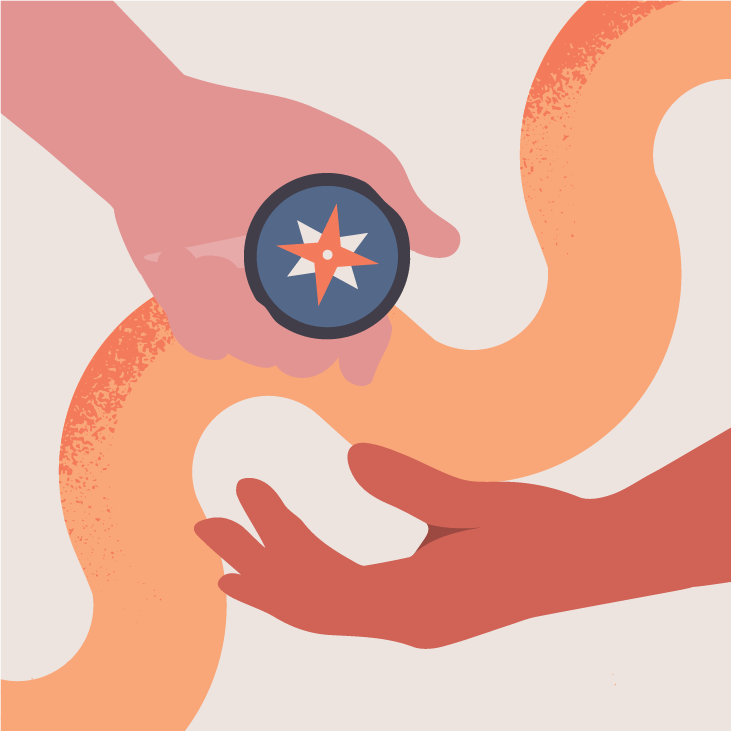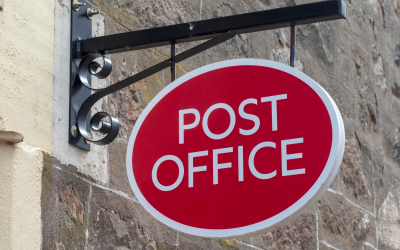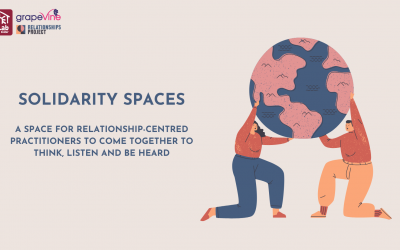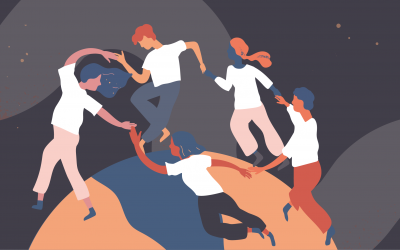How can we most usefully respond to the increasing demand for knowledge about relationship-centred practice, and for support in turning that knowledge into action on the ground?
This is the question that we have been actively exploring since we put forward the idea of a Relationships Academy at David’s LSE lecture last year. In this blog we explain our plans and we end with an invitation.
The potential is exciting. Please help us to get it right.

Why?
Good relationships are the foundations on which all else is built – stable childhoods, effective education, thriving communities, compassionate care, just policing, a fair economy, responsible government, the list goes on. Yet from medical school to business school, vocational training to university degrees, further education courses and professional development, we seldom dig into the skills that would really make the world a better place – how to negotiate difference, to resolve conflict, to forgive and collaborate, how to manage bias and power, how to talk to one another and to listen well, how to live and work together locally and globally.
Perhaps we think it comes naturally, but does it? Just because most children learn to walk by observing adults doesn’t mean that they will be an athlete or even physically fit. We keep training, we learn new skills and we keep practising. We need to apply the same attention to forming and sustaining good relationships.
Relating well is a learnt skill. We can learn to do better.
Over the last five years, the Relationships Project has built up a substantial body of knowledge and an extensive network of practitioners and thinkers with deep and evolving experience. We have developed a range of tools and established a solid evidence base. We have learnt that there are people and places who want this knowledge and also want support in turning the knowledge into action. We are not aware of any training institution, anywhere in the world, that currently meets this need.
What?
Over the coming years, we are planning to develop the Relationships Academy.
The Relationships Academy will equip and empower existing, emerging and next generation leaders from different sectors and specialisms with the knowledge, skills and connections to strengthen their relational practice and embed it in their work.
The teaching pedagogy will reflect the relational content and purpose. Blending self-discovery, peer learning, bespoke support and, of course, relationship building, the Academy will be a unique place of study and learning. The Academy will support learners to:

Build their understanding of relationship-centred practice and why it matters. Learners will engage with the theoretical foundations of relationship-centred practice and learn how to put together a compelling case for putting relationships first in their own place

Connect with others who share a belief in the importance of relationships, building networks of solidarity and support which will endure beyond the learning experience

Develop the practical skills, knowledge and mindsets required to embed relationship-centred practice in their area of work, and learn how to navigate the common challenges of relational working
How?
The Academy will offer two pathways for engagement and one community for knitting it all together:
1. Help Yourself

Offering learners an opportunity to dip their toes into the ideas, resources and networks held within the Academy, the Help Yourself pathway provides access to peer-led conversations, Open Days, drop-in sessions with Relationship Project Associates, and access to the Relationships Project tools and resources, including the Pattern Library and Heatmap.
2. Cohort Training

Bringing together practitioners and leaders who share an identity (eg police officer), interest (eg reducing health inequality) or geography (eg our town). Cohort training will provide structured, tailored learning over a period of time. Each cohort will be introduced to the fundamentals of relationship-centred practice before being supported by relational leaders in their area of focus to apply these ideas in their own context.
Academy Community

Around these two pathways and helping to knit it all together, we will be building the Academy Community with an ongoing programme of events, training for trainers, opportunities for connection with learning partners, short courses open to anyone, an alumni movement and an open space for emergent ideas.
Our invitation
As anyone who has followed our work over the last six years will know, we are deeply committed to developing all our work in plain sight and to working with partners. If you are interested in these ideas, and perhaps in playing a part, we would love to talk to you.
THINGS WE’D LIKE TO LEARN:
1. What do you think? What are you excited by? What would you change?
2. What areas should we focus in on? Are there particular professions, services, outcomes or geographical areas that you think could particularly benefit from experiencing the Academy? Where do you think we could have the biggest impact?
3. How could the Academy become financially sustainable? What are some possible revenue streams? What are some possible business models for the Academy?
4. Are there existing platforms on which we could host the Academy? We’ve starting looking into ‘Massive Open Online Course’ platforms but have a lot to learn. Have you got insight you could share?
Can you help with any of these? If so, we’d love to hear from you!
More from us
The Post Office Scandal: Putting Relationships Last
Mostly on the Relationships Project blog we talk about the value and importance of putting relationships first. The Post Office Horizon scandal, dominating the news in recent days, has made us think about the grim consequences of doing the opposite - putting...
#SolidaritySpaces
Working in relational ways is joyful, empowering, revolutionary. In putting relationships first we unlock our shared humanity, we bring love into unloving spaces, and we acheive things we couldn't otherwise achieve. But working in relational ways can also be tough,...
Our dreams for 2024-2029
In brief In 2021 The Relationships Project was delighted to secure funding for a 2 year project to start to build towards a 20 year vision for a relationship-centred world (you might remember we shared our original application here). With 9 months to go until the end...




There is a lot I would like to say! I was a probation officer (old motto: ‘advise, assist, befriend’ – how far we have strayed!) and then family mediator and mediation trainer for 25 years. Also have set up various projects in the third sector, to do with dialogue, coaching, community integration.
Right now I am leading a project called Community Connections in Bullingdon Prison, which opens up the prison to community resources. After a fully evaluated (by an independent Criminal Justice researcher) 2 year pilot we have secured funding for a further 2 years.
So all this is foundational – and if we followed it seriously we could change the world. Thank you. I would like to be involved and would value a conversation.